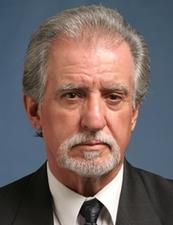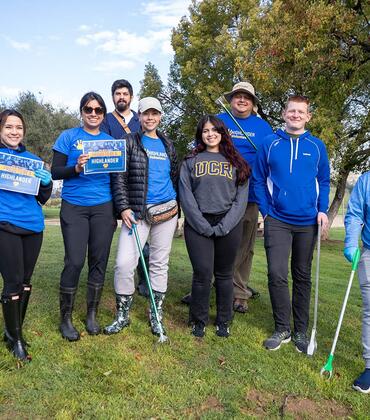
In advance of Mexico’s presidential election on Sunday, July 1, Armando Navarro, a political scientist and professor emeritus in the Department of Ethnic Studies at the University of California, Riverside, will travel to Mexico City with his wife, Maria Anna Gonzales, as unofficial observers of the historic event.
Navarro contends the election’s results will have massive implications for Mexico, the United States, and the world. Competing for the presidential office are four candidates: Andrés Manuel Lopez Obradór, a leftist/populist who currently leads the polls by between 20 and 30 points; Ricardo Anaya; José Antonio Meade; and Jaime Rodríguez Calderón.
According to Navarro, Mexico today is increasingly unstable, violent, crime-ridden, and plagued by corruption and rampant economic inequality. Since the start of the Mexican Drug War in December 2006, some 200,000 people have been killed and an additional 36,000 have disappeared.
During their time in Mexico, Navarro and his wife will conduct an informal opinion survey, asking people on the street for whom they are voting and why. The pair will also have the opportunity to meet with official observers and delegations from the U.S. and other parts of the world to glean their analyses of the election. On election day, they plan to visit polling places around Mexico City.
Their work will inform Navarro’s research on Mexico’s presidential election for his latest book’s final chapter. The book — tentatively titled “Mexico, an Emerging Superpower in the 21st Century: Peaceful Revolution or Violent Rebellion?” — comprehensively examines Mexico’s political and economic history from the Mesoamerican era of the Olmec people to today’s turbulent and violent conditions. It also provides forecasts for the next 50 years.
“Mexico’s angry electorate will vote and determine its new fate: either peaceful revolution or violent rebellion,” Navarro said. “Either way, this election will portend unparalleled changes and challenges for Mexico, the U.S., and the world. It could mean the beginning of a major push to transform Mexico into a prosperous great power and inevitably into a superpower.
“But should election fraud occur,” he added, “Mexico could face the prospect of unleashing an angry people, which could mean the start of a violent rebellion and destabilization of Mexico.”
Navarro’s areas of specialization include Mexicano and Latino politics, Chicano history, Chicano and Latino contemporary issues, social movements, immigration, and global capitalism.
A prolific author, his books include “Mexican American Youth Organization: Avant-Garde of the Chicano Movement in Texas” (1995), “The Cristal Experiment: A Chicano Struggle for Community Control” (1998), “La Raza Unida Party: A Chicano Challenge to the U.S. Two-Party Dictatorship” (2000), “Mexicano Political Experience in Occupied Aztlán: Struggles and Change” (2005), “The Immigration Crisis: Nativism, Armed Vigilantism and the Rise of a Countervailing Movement” (2008), “Global Capitalist Crisis and the Second Great Depression: Egalitarian Systemic Models for Change,” (2012), and “Mexicano and Latino Politics and the Quest for Self-Determination: What Needs to Be Done” (2015).




